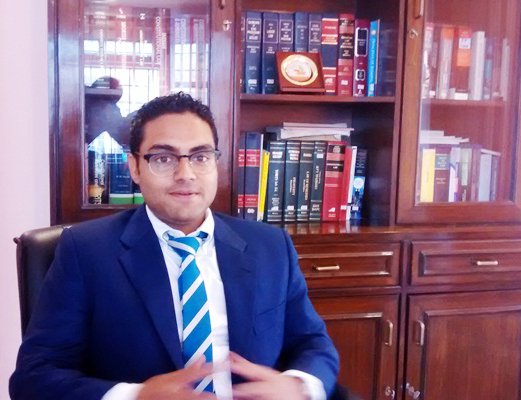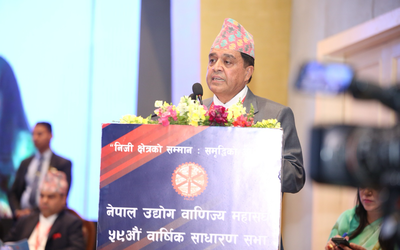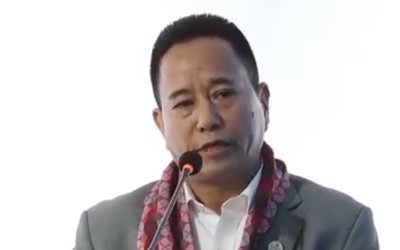
In the changing context, what do you want to do to make your law firm different from the rest?
Generally, people have not realized the potential of our industry. The corporate law practice, as all other industries, is a process. People are currently working as individuals with their own expertise but not particularly as a team.
Why do you need a team?
In the factories, there is a manufacturing line. Someone’s expertise lies in the one particular area that he or she is making. Let’s talk about the Ford car Factory. Someone might be an expert on the back burner, another on the chassis and the next one on the engine. This is the same with the legal practice. Someone visits to start the company, to plan and hire and forge agreement. Every area needs an expertise. Right now people are not working that way. One person is doing the whole thing. You can be making something big, handmade in commercial manner does not make sense. We are doing the same thing as every industry has done around the world. We are making a process which is more affordable, quality assured and one stop shop.
Given Nepal’s situation, how do you see the future of this kind of law firm specializing in various areas?
There is enough opportunity in Nepal. It’s a huge risk and risks are in every business. If you look at the context of Nepal, the risk is worth taking. Nepal’s situation is like getting the car into the street in 1920s or something. However, it is a booming industry and it is untapped and expanding in a manner where there is a team of people to do a lot of work. The efficiency created by a big team, by having senior people have knowledge to guide and junior people learning and getting the rest of the work done gives the quality service at end of the day.
What difference does working in a team make?
Unlike having to depend on one person's capacity, with how much capability and time he or she has, when you make a team work like a factory, where once you get in everything, it systematically moves forward in time and work happens in a systematic way, everything looks mechanical. The opportunities are unlimited. It is just the opportunity in Nepal's hydroelectricity. Once the turbine keeps spinning, it generates opportunity. Yes there are unforeseen events that might make the business risky. The earthquake did hurt some projects. Similarly, there are external factors which look risky. But, overall there is no difference between the river flowing water continuously and a law firm seeing business continuously.
Since you are two generations, your father and you, working in Nepal, how do you run the firm?
It is very interesting. The good thing is that the market is so huge. Our firm is a blend of old and new. Our firm has different departments and different departments do different works. I might be interested in what other departments are doing. I might be interested to get involved in that department for learning the work. But we don’t interfere with the work of different departments.
How do the departments work?
We have demarcated different departments headed by senior persons in their respective fields. Working under them, we meet them for guidance. For us, there is always something small within the firm. We do our work, but in some places our capability and expertise require that senior hand touch. My father and other senior partners in the firm help us once we go there for help. In our firm, we go to them and ask them for help with their expertise. We like it. Within our team, we don’t interfere in the business. Different teams have different businesses to do and if you are really eager you can get involved and learn from it, otherwise, we just stick to our work.
Having studied in the UK and come back to work in Nepal, how do you see the scope of legal work in Nepal for young lawyers like you?
The scope of work in Nepal is enormous. It is very promising because the context of Nepal is that we don’t have a system here. We have been working in a country where not only legal practice even our roads have not met the standards. What I mean by that is that the United Kingdom gave me a spirit to stand. In developed countries, infrastructures have already been made and what they are trying to do is to make infrastructure more efficient and maintained. Maintaining is a big thing for them. Here we don’t have it and we have to make it. So we are in the forefront in any investment in Nepal to make something, not to maintain. So opportunities for young lawyers in Nepal is very promising and it is unlimited. Even top 20 or 30 lawyers are not enough for this country. We need about two hundred of them.
As you are expanding your offices in different parts of Nepal, how do you see their scope?
The thing is we have to work in Nepal. Luckily enough, we have the opportunity and we have the team here. We have opportunity to go outside and expand our office. I would say we are lucky in the sense that we have a good team and we work very hard to meet the team work here. At the end of the day, we have to work in Nepal. We are Kathmandu-centric because the whole system and geographical structures is aligned with that and the geo-political structure is aligned in that manner. But at the end of the day when talking about the development and infrastructure or whatever you want to talk about, manufacturing or increasing GDP, we have to do it throughout Nepal. Kathmandu would not be enough. That means, eventually, we have to work outside Kathmandu.
Why are moving outside Kathmandu when most of the top firms are running in capital?
Like any industry, we will have to move outside Kathmandu to serve the people. What time is better than now to go and be ready for the future? Rather than having to be forced into that situation, we are getting prepared for that situation. We know it is coming in Nepal when industries are expanding and situation is improving, Being ready, having a base outside, introducing the corporate practice among the people there, it will take us to the forefront of the industry. We want to let the people there know that a law firm that can help them.
How do you look at your work in Kathmandu?
Kathmandu is still comparatively better than any other part of Nepal. It is a little more professional because everything is centralized here. So compared to other parts, here we are a little more professional. When we move right outside Kathmandu, the new offices do not yet look fully professional. These cities have industries and are producing things. So, slowly and gradually, there is a rising professionalism. But they have not introduced what corporate practices are. That poses a challenge, possibly, a big challenge. There are opportunities to grab as well. The challenges is to get the people to understand the needs and prospects.
- BIMSTEC SUMMIT: Nepal’s Stand
- Apr 11, 2025
- IME GROUP: Expands Into Paper Industry
- Mar 24, 2025
- CPN UML: Instigated By India
- Mar 23, 2025
- ADB’S CHIEF ECONOMIST: Nepal Reduces Poverty
- Mar 11, 2025
- FM DR. DEUBA: A Successful Visit
- Mar 11, 2025















